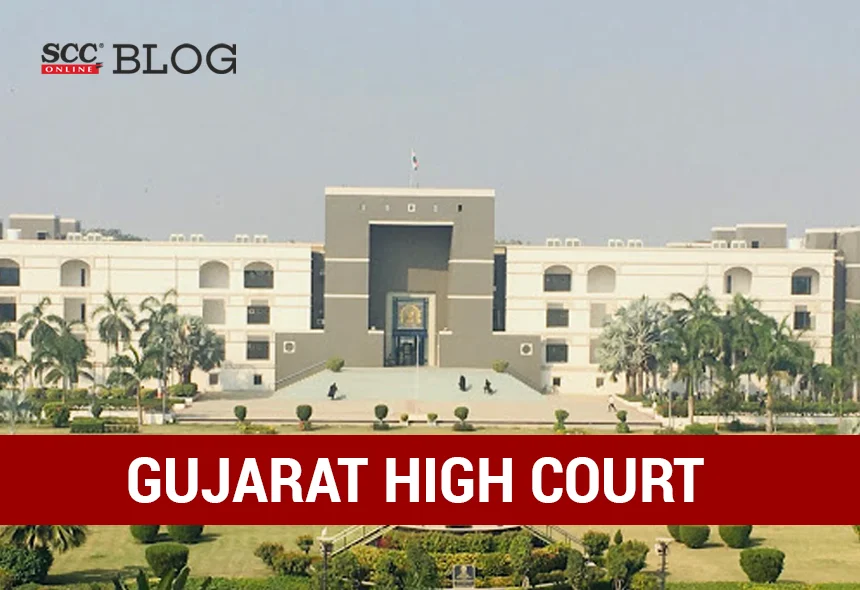Gujarat High Court: In a bail application filed by former Resident Additional Collector, District Anand under Section 439 of the Code of Criminal Procedure, 1973 (‘CrPC’) for offences punishable under Sections 389, 354(c), 120(B) of the Penal Code, 1860 (‘IPC’) and Sections 66(E) and 67(A) of the Information Technology Act, 2000, M.R. Mengdey, J. allowed the application and released the accused person on bail.
In the matter at hand, the former Resident Additional Collector, District Anand was accused of installing Spy Cameras in the chamber of the then District Collector and a lady was made to visit the office of the Collector and she was instructed to develop intimacy with him, in exchange for some payment. The lady had visited the chambers on several occasions and both of them were found to be physically involved and they were captured in a compromising condition in the Spy Cameras. The accused used the video footage so captured in the Spy Cameras to get the District Collector to clear certain controversial files pertaining to NA Permission or else he would be implicated in an offence punishable under Section 376 of IPC.
The Court said that the accused, being a public servant, had a bounden duty to protect and work in furtherance of public interest, however, instead of doing so, the accused indulged into an act which has tarnished the image of a public authority. On perusal of the record, the Court noted that the accused person had hatched the said conspiracy against the then District Collector as he was asking her to accompany him for dinner and wanted to visit at her residence, thus, the Court also called out for equal responsibility of the then District Collector.
The Court clarified that if the accused found the conduct of the then District Collector to be objectionable, there is a mechanism for ventilating such grievance in all public offices and, if it was really the case, she could have taken recourse to the said mechanism. Further, the Court noted that the co-accused, who is a practicing advocate for Revenue Laws wanted to get clearance on the files pending with the then District Collector as he had charged huge amounts from his clients for those land clearances.
The Court said that the charges against the accused are very serious in nature, hence the bail application deserved consideration . The Court noted that when the bail Application was filed, investigation was in progress, however, during the pendency of the present Application, charge sheet was filed. Therefore, the Court rejected the contention that since the charge sheet was filed during the pendency of the Application, the Applicant should be relegated to approach the lower court for bail after filing of the charge sheet. The Court said that when the Court is allowing the Application filed by the other co-accused persons, there is no point in relegating the accused to approach the Sessions Court only for the sake of formality.
Therefore, the Court granted bail to the accused with a bail bond of Rs. 10,000/- and one surety, on basis of the facts of the case, nature of allegations, gravity of accusation, availability of the accused at the time of Trial etc. The Court imposed following conditions on the accused person’s bail:
-
not directly or indirectly make any inducement, threat or promise to any person acquainted with the fact of the case to dissuade from disclosing such facts to the Court or any Police Officer or tamper with the evidence.
-
maintain law and order and not to indulge in any criminal activities.
-
furnish the documentary proof of complete, correct and present address of residence to the Investigating Officer and to the Trial Court at the time of executing the bond and shall not change the residence without prior permission of the Trial Court.
-
provide contact numbers as well as the contact numbers of the sureties before the Trial Court.
-
file an affidavit stating her immovable properties whether self-acquired or ancestral with description, location and present value of such properties.
-
not leave India without prior permission of the Trial Court
-
surrender passport, if any, to the Trial Court within a week.
-
not enter Anand City till conclusion of trial except for attending the Court proceedings.
The Court clarified that in case of breach of any of these conditions, the Trial Court will be free to issue a warrant or take appropriate action according to law.
[Ketkiben Vasudev Vyas v, State of Gujarat, 2023 SCC OnLine Guj 4086, Order dated: 10-11-2023]









